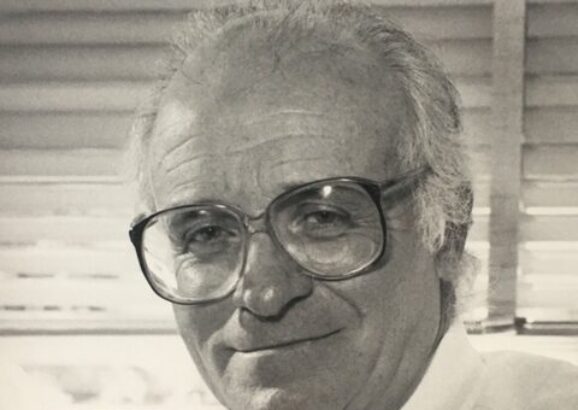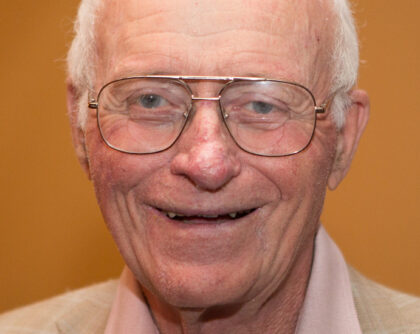Bernard F. Burke, SB '50, PhD '53
In Memoriam: June 6, 1928 – August 5, 2018
Research Interests
Prof. Bernard F. Burke, William A.M. Burden Professor of Astrophysics, formerly of the Radio Astronomy Group of the Research Laboratory of Electronics, was a principal investigator at the MIT Kavli Institute for Astrophysics and Space Research.
Biographical Sketch
Bernard Flood Burke was born on 7 June 1928. He received his undergraduate physics degree from Massachusetts Institute of Technology (MIT) in 1950 and his Ph. D. in physics, also from MIT, in 1953. From 1953-1965 he was a staff member at Carnegie Institution of Washington, engaged primarily in research in radio astronomy, and was Chair of the Radio Astronomy Section from 1962-1965. In 1965 he joined the MIT faculty as Professor of Physics, and is now William A. M. Burden Professor of Astrophysics Emeritus. During his long tenure at MIT he supervised numerous doctoral students, many of whom have gone on to distinguished careers.
Burke’s research extends over a large variety of topics. He was co-discoverer in 1955 of radio noise from Jupiter, and his work has included the search for gravitational lenses, ground-based very long baseline interferometry, very long baseline interferometry from space, and the study of exo-planets. Burke is the co-author, along with F. Graham-Smith, of the popular text book, Introduction to Radio Astronomy, which is in its 3rd edition.
Burke was a member of the National Science Foundation Astronomy Advisory Panel from 1958-1963, served on the National Radio Astronomy Observatory (NRAO) Visiting Committee from 1958-1962, and as a Trustee for Associated Universities, Inc. from 1972-1990. He received the Helen B. Warner Prize of the American Astronomical Society in 1963, and was the 1998 Jansky Lecturer at NRAO. He is a member of the American Astronomical Society, the American Physical Society, the International Astronomical Union, the National Academy of Science, the American Academy of Arts and Sciences, the American Academy for the Advancement of Science, and the International Scientific Radio Union U.S. National Committee – Commission J. He has served on advisory councils and committees for the Keck Telescope, the National Academy of Science, the National Research Council, the National Science Board, the Naval Studies Board, and the Space Science Board. He was a member of the Planetary Systems Working Group and the Towards Other Planetary Systems Scientific Working Group.
[Biographical note written by Ellen N. Bouton.]
- Obituary [Boston Globe, 8.10.2018]
- Obituary [ObitTree, 8.10.2018]
- BERNARD BURKE, WHO CO-DISCOVERED JUPITER’S “VOICE,” DIES AT 90 [Carnegie Science, 8.10.2018]
- Finding Aid to the Papers of Bernard F. Burke, 1959-2004
- How One Night in a Field Changed Astronomy [NASA, 9.26.2005]

Professor Emeritus Bernard Burke, astrophysics pioneer, dies at 90
Former Astrophysics Division chair discovered radio noise from Jupiter and the first Einstein Ring, and developed tools to map the universe.
Key Publications
-
Burke, B. F., and K. L. Franklin (1955), Observations of a variable radio source associated with the planet Jupiter, J. Geophys. Res., 60(2), 213–217, doi: 10.1029/JZ060i002p00213.
